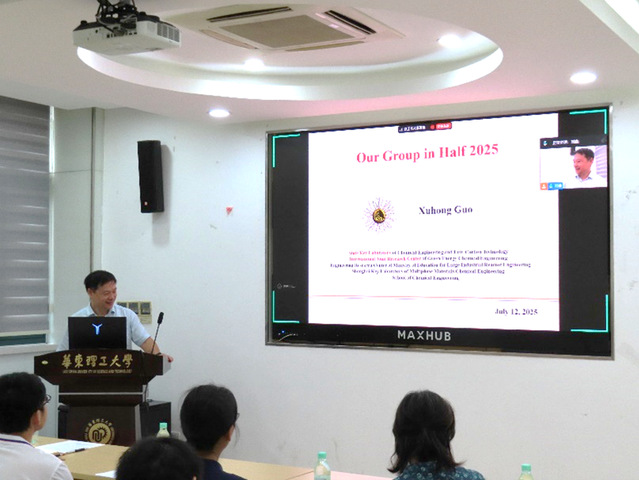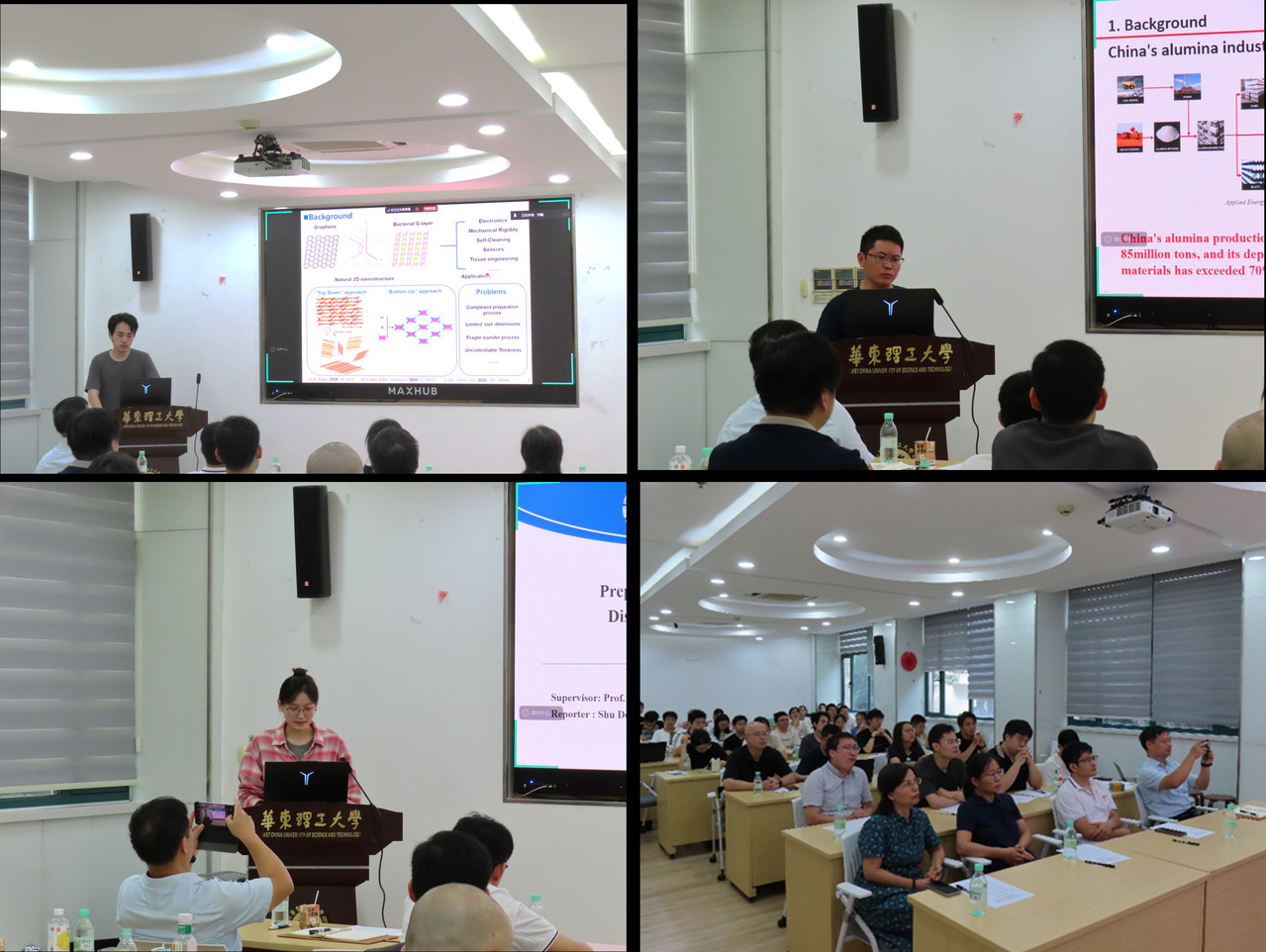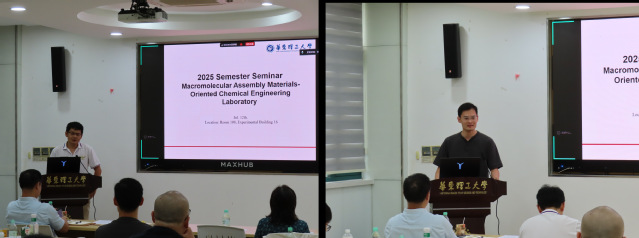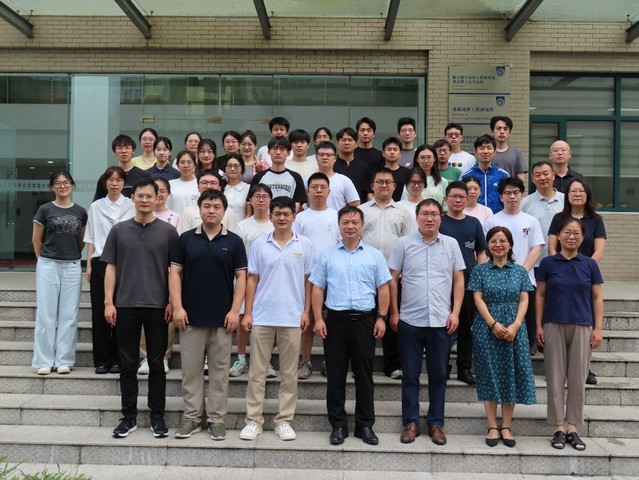To summarize the academic year's research progress, e internal academic exchange, and strengthen industry-university-research collaboration, the Macromolecular Assembly Materials-Oriented Chemical Engineering Laboratory, led by Professor Xuhong Guo of the School of Chemical Engineering at East China University of Science and Technology (ECUST), successfully held its 2025 Spring Semester Group Symposium on July 12, 2025, at Room 108, Building 16, Xuhui Campus. All group members, collaborators in related fields, and several distinguished alumni attended the event, with remote access provided for those unable to join in person.
At the beginning of the meeting, Professor Guo presented the group’s research achievements for the semester: as of July, the group had published 25 SCI-indexed papers, including 8 in top-tier journals such as Advanced Materials, Angewandte Chemie International Edition, and Biomacromolecules, and had disclosed 4 patents. He welcomed new members on behalf of the team and reviewed the group's academic activities and achievements from the first half of the year. Professor Guo commended the team’s dedication and accomplishments and encouraged everyone to maintain a proactive spirit, strengthen academic exchange and collaboration, and continue to elevate the group’s overall research excellence.

Professor Guo presenting the group’s research progress
The meeting featured a compact and well-organized agenda, during which 40 graduate students delivered academic presentations. Reports were conducted entirely in English and held to high standards: PhD students were given 10 minutes each, while master’s students had 5 minutes. Each student provided a thorough summary and systematic presentation of their semester's work, covering cutting-edge topics such as polymeric assembly materials, functional coating design, intelligent soft materials, controlled synthesis of nanomaterials, and intensified chemical processes. Several engineering doctoral students working in industry also participated, offering valuable insights into industrial applications, cutting-edge technologies, and their perspectives on research commercialization. The symposium fully demonstrated the group’s diverse research progress and deep integration of academic and industrial thinking, providing members with a high-level academic exchange platform.

The event also welcomed the return of several alumni now active in fields such as materials science, chemical engineering, biomedicine, and environmental technology. They expressed great satisfaction in seeing the group’s continued breakthroughs in both fundamental research and application development, and looked forward to deeper industry-academia collaborations in the future.

The symposium concluded successfully in a strong academic atmosphere. Attending faculty and students alike commented that the event not only showcased recent research achievements, but also provided a valuable learning and exchange opportunity. In particular, the dialogues with outstanding alumni offered important inspiration for broadening research horizons and ing knowledge transfer. The group remains committed to advancing frontier research and engineering applications in macromolecular assembly materials.

Group photo of Professor Guo and team